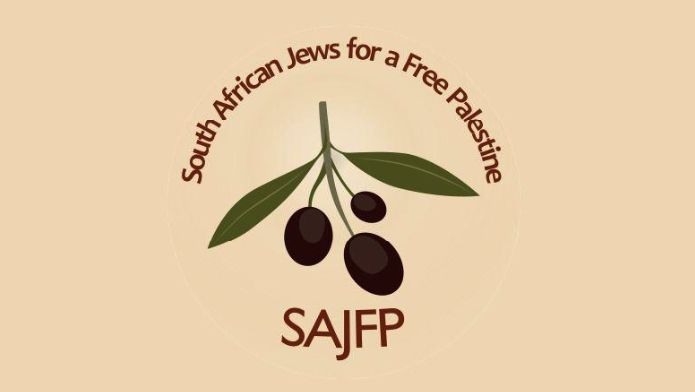Ramallah – The Palestinian NGO Network (PNGO), in partnership with Palestinian trade unions, held a press conference on Wednesday in which it called on the Palestinian Authority and the United Nations to declare the Gaza Strip a disaster area affected by famine, environmental pollution and the spread of diseases, in a statement which was issued by more than a hundred local and international institutions and coalitions, including dozens of organizations operating in the Gaza Strip.
The conference opened with a video clip recorded by the director of PNGO in Gaza, Amjad Shawa, from his place of displacement in Deir al-Balah, in which he described the situation as dangerous, and that the situation is worsening in light of the escalation of the Israeli occupation, represented by Israeli shelling and targeting of the necessities of life, restrictions and closures imposed on the entry of aid, the running out of food, and water as a result of the disruption of the work of wells as a result of the lack of fuel, and the targeting and destruction of the health sector. The demand that Gaza be declared a famine and disaster area, and to work to stop the aggression and protect civilians and civilian structures.
During the conference, the executive director of the Bisan Center for Research and Development, Ubai Al-Aboudi, explained that the declaration of famine in the Gaza Strip is not a technical matter related to indicators that must be proved! It is the reality that the people of Gaza are aware of today in full view of the world, and that famine is a reality according to what was observed in February and March, when more than 27 children died because of hunger. In addition, there is nopossibility in Gaza to issue death certificates on a regular basis, and there is very limited access to medicine, medical facilities and doctors.
Al-Aboudi stressed that the importance of the declaration stems from the fact that it has legal consequences, and obliges the Palestinian government to take emergency measures, including declaring a state of health emergency, and exempting Gazans from all government fees. It also documents the famine in Gaza as the third famine of the twenty-first century, putting the world before its responsibilities towards the speedy end of Israel’s genocidal war against the Palestinians, and ensuring that no Israeli government will be able to repeat these crimes in the future.
Al-Aboudi touched on the lack of aid, noting that the amount of aid during the month of May is the lowest since October 2023, and the accompanying interruption of medicines and the destruction of people’s ability to access clean water and aid as a result of the Israeli occupations invasions and attacks that reached Tel Al-Sultan in Rafah, where main UNRWA warehouses are. He explained that the United Nations announced Distributions are halted and almost suspended, and the pier is a big lie, through which only limited aid has entered. He stressed that the scale of the ongoing crime is unprecedented, and that the malnutrition to which the children of Gaza have been subjected to will have profound health effects for years to come.
Al-Aboudi stressed the need for the Palestinian Authority and the government to declare famine by the Palestinian Government and by the United Nations, pointing out that this declaration is a step and will not be the only one, within the widest coalition of institutions, unions and movements.
The head of the NGO Network, Dr. Muhammad Abboushi, reviewed the international laws that prohibit famine as a military practice against the civilian population, stressing that causing famine and destroying the necessities of life in the Gaza Strip violates the temporary measures approved by the International Court of Justice, which prompts the possibility of prosecuting those responsible for the matter or those responsible for delaying the delivery of aid before the International Criminal Court.
For his part, Helmy al-Araj of the Council of Human Rights Organizations pointed out that the occupation further perpetuates the crime of genocide, and prevents the entry of aid and fuel, violating all international laws that ensure the protection of civilians during wars. Defying the international community, the International Court of Justice and world public opinion. He stressed the need to declare Gaza a famine-stricken area so that the human conscience can move and States and the international community can assume their responsibilities. He pointed out that the West Bank is also exposed to the crime of genocide, where the systematic destruction of the national economy, and as a result of the silence of the world, and famine has already reached the Palestinian prisoners.
For his part, Dr. Hassan Eida, a specialist in pediatric endocrinology and diabetes, described during his speech on behalf of the Medical Association, the situation in Gaza as catastrophic, because of the lack of water, proper nutrition, medicines and the spread of epidemics. He pointed out that the occupation attacked hospitals, which led to the destruction of a large part of them, and talked about his follow-up with pediatric patients in the Gaza Strip and the impact of the lack of food and medicine on them, which had a negative health effect on patients especially children, women and the elderly, and the lack of treatment led to the death of some patients, as is the case for children with diabetes.
Eida pointed out that attempts to coordinate the entry of some medical delegations to Gaza were mostly rejected, with the exception of some doctors with foreign nationalities, knowing that rows of doctors are trying to enter Gaza to help. Eida said that if the war stops immediately, thousands will also die because of the consequences of the war from malnutrition, pollution and lack of treatment.

